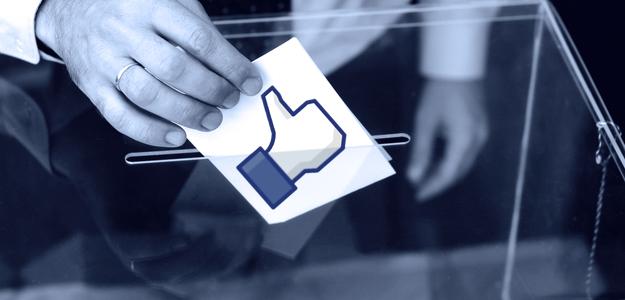 In a move that’s sure to turn a few heads, Washington will become the first state in the nation to let residents register to vote through a Facebook app, reports the Associated Press. State leadership hopes the app will entice more younger residents to register. The app, dubbed MyVote, will reportedly launch as soon as next week, though it could arrive later.
In a move that’s sure to turn a few heads, Washington will become the first state in the nation to let residents register to vote through a Facebook app, reports the Associated Press. State leadership hopes the app will entice more younger residents to register. The app, dubbed MyVote, will reportedly launch as soon as next week, though it could arrive later.
The MyVote app will be accessible through the secretary of state’s Facebook page. Users must agree to allow Facebook to access their information, just as many apps do now. In an interview with Ars Technica, Shane Hamlin, Washington’s co-director of elections, said that the MyVote app (which, incidentally, was created by Microsoft, a Washington-based company) will pull users’ names and ages straight from Facebook, “then it operates exactly as it does if you’re not in Facebook,” he said. While speaking with the AP, Hamlin said that users need not worry about privacy — “You’re giving your information to us, not Facebook,” he said.
Washington is one of twelve states in the U.S. that allows residents to register to vote online, a feature made available in 2008. Online voter registration has so far been a success, with more than 475,000 people registering or updating their personal information through the Web-based system. Of those who registered online in Washington between March 2010 and March 2011, 60 percent fell in the 18-to-34-year-old demograpic — an active group of Facebook users. Hamlin says each county should expect to save between $0.50 and $2 per registration because of the app. The state will save an additional $0.25 per registration.
While it is not yet clear whether other states will follow Washington’s lead, it is obvious that Facebook is more than happy to mesh itself more fully with the electoral process. Last week, CNN announced that Facebook will begin to provide various metrics surrounding what people are saying about President Obama and his Republican opponent, Mitt Romney. CNN will then use that data in its Web and television election coverage.
In addition, Facebook users will be able to declare whether or not they plan to hit the ballot box this November with the “I’m Voting” app, which CNN says “will enable people who use Facebook to commit to voting and endorse specific candidates and issues.” Some argue that publicizing a person’s political views and intention to vote on Facebook is unethical.
How do you feel about Facebook becoming an internal tool for state and national elections? Is the social network stepping outside its bounds, or is this simply a natural progression for the digital era? We’re still trying to decide — let us know your thoughts in the comments.
Editors' Recommendations
- Meta found over 400 mobile apps ‘designed to steal’ Facebook logins
- Facebook’s massive outage saw millions sign up for rival apps
- Facebook says it has helped 2.5 million people register to vote
- Facebook says Apple didn’t let it tell users about App Store tax
- Facebook is adding shopping to your mobile app


